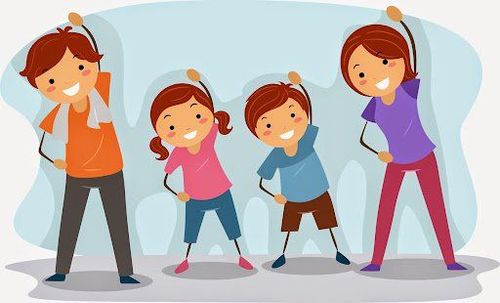This is an automatically translated article.
When faced with fear, how do you react? Are you immobile and your body seems to be "frozen" in the face of that fear? How is the body's mechanism in this situation explained? Understanding these questions will help you figure out how to get it under control.
1. What is fear freezing?
You may not know, fear can "freeze" your body. The researchers say that "freezing" or standing still when a threat is detected is a natural defensive response. This human response to fear resembles the immobility seen in many animals in the face of threats, which is a defense mechanism designed and engineered to promote survival. also for species.
This response immediately causes hormonal and physiological changes, allowing you to act quickly to protect yourself. It is also the survival instinct that the ancient ancestors of mankind developed many years ago.
The “freeze” or “fight-flight-freeze response” is an active defensive response to fear. The heart rate then speeds up, increasing the flow of oxygen to the major muscles. The perception of pain will decrease and hearing will become sharper. These changes help the animal's body act appropriately and quickly.
“Freeze” is also known as reactive immobility or attentional immobility. It involves the same physiological changes, but instead, you lie completely still to get ready for the next move.
When the body reacts to “freeze”, it is an automatic response, not a conscious decision and you cannot control.
2. What happens when fear makes you “freeze”?
During the “freeze” reaction, many physiological changes occur inside the body. The response begins in the amygdala, the part of the brain responsible for perceiving fear. The amygdala located deep in the temporal lobe of the brain sends signals to the hypothalamus to stimulate the autonomic nervous system (ANS).
The ANS includes the sympathetic and parasympathetic nervous systems. The sympathetic nervous system controls the fight or flight response, while the parasympathetic nervous system controls freezing. How you react will depend on which system governs the reaction at that moment.
In general, when the ANS is stimulated by fear, the body releases adrenaline and cortisol, the stress hormones. These hormones are released very quickly and cause many effects, specifically:
Heart rate: The heart will beat faster to carry oxygen to the main muscles. During freezing, the heart rate may increase or decrease. Lungs: Breathing rate increases to deliver more oxygen to the blood. During a freezing reaction, you may hold your breath or limit your breathing. Eyes: Peripheral vision increases to be able to perceive surroundings. Pupils dilate and receive more light to help see better, assess the risk of causing fear. Ears: Ears "pinch up" and hearing becomes sharper. Blood: Blood thickens to increase clotting factors, preparing the body for possible injury. Skin: The skin may sweat more or become cold, turn pale, or get goosebumps. Hands and feet: As blood flow increases to major muscles, hands and feet can become cold. Pain perception: The “freeze” response reduces the perception of pain. The specific physiological responses will depend on how we normally respond to stress and fear, but are difficult to control. Normally, the body will return to its natural state after about 20-30 minutes.

Nổi da gà khi bạn bị nỗi sợ hãi kích thích
3. Psychological explanation for the phenomenon of the body "freezing" before fear
While the "freeze" response causes a physiological response, it is triggered by fear. Modified fear, which means that we associate a situation or thing with negative experiences. This psychological response is initiated upon first exposure to the situation and develops over time.
When we are afraid and know it is a threat, the body is aware of what we perceive as dangerous. Each person perceives threats differently. When faced with a perceived threat, the brain thinks we are in danger and already considers the situation life-threatening. As a result, the body will automatically react to "freeze" to stay safe.
4. Examples of "freezing" of the body in the face of fear
The “freeze” reaction can appear in many situations in life, including:
When you are driving on the road, the car in front suddenly stops causing you to brake suddenly. When you were walking on the street, suddenly a fierce dog appeared and came snarling at you. When you are on the road, a car comes up, causing you to jump off the road. When you are sitting in the room, someone suddenly jumps in, causing you to panic. Sometimes, the "freeze" response can be overactive, even when you're not facing any fear. This happens when non-threatening situations trigger the body to react. Overreactions are more common in people who have experienced the following emotional states:
Trauma: After a traumatic event, you develop an excessive stress response. This is more likely to happen if you have a history of trauma, physical or sexual assault, an accident, a natural disaster, childhood trauma, dealing with life events. stress and fear in life. In this case, your brain responds with associated triggers to prepare you to deal with future traumatic situations. The result is an overactive response. For example, in patients who have experienced trauma from a car accident, they may have a stress response to hearing a car horn because it reminds them of the accident. Anxiety: Anxiety is when you feel scared or worried about a situation. In fact, anxiety is a natural response of the body to help us respond more appropriately to situations that arise. If you have an anxiety disorder, you are more likely to feel threatened by stressors that do not cause fear. This can cause an excessive stress response to everyday activities such as riding the bus or riding in traffic.
5. How to overcome your fear?
In the face of fears that trigger a stress response, we have many ways to deal with them. This includes different strategies and treatments such as relaxation, physical activity, and social support.
5.1 Relaxation helps you overcome your fears By doing activities that promote relaxation, you can overcome your fears. You can refer to and apply the following relaxation techniques:
Deep belly breathing; Focus on a word that gives a soothing feeling; Visualize peaceful images; Meditation ; Pray; Practice yoga, tai-chi. Regular practice of these techniques can help you improve the way you respond to stress.
5.2 Physical activity helps you get rid of fear Another suggestion is to exercise regularly. Physical activity helps reduce the stress response to fear by:
Reducing the stimulation of stress hormones, including adrenaline and cortisol; Increased endorphins; Improve calmness; Helps sleep better. These benefits can bring about a relaxed mood and feeling, helping you to better cope with stressful situations that may be encountered in life.

Hoạt động thể chất là một trong các phương án giúp bạn vượt qua nỗi sợ hãi
5.3 Get social support Building and developing relationships in society is also very important and brings certain benefits, which can help reduce the body's psycho-physiological responses to stressors. threats that you are aware of. It gives a feeling of security and protection, helping you to overcome fear. Social support can come from different people, including friends, acquaintances, co-workers, relatives, significant others, professionals.
6. When to see a professional to overcome fear?
If you are always in a fight-or-flight situation, consider seeing a mental health professional. In particular, you should seek help if you have the following problems:
Always feel anxious, nervous or afraid of things; Stress interferes with daily activities; Fear of non-threatening situations; inability to perform relaxing activities. A mental health professional can help you identify the underlying cause of these feelings, create a plan to help you work through your fear, and reduce your stress response, but it depends on your symptoms and schedule. your mental health history.
Psychological fear can trigger the “freeze” response. The body has developed this defense mechanism to induce physiological changes that help protect the body against perceived threat. If you have a history of trauma or anxiety, you may overreact to non-threatening situations. A mental health professional can help you find ways to deal with situations that are right for you.
Please dial HOTLINE for more information or register for an appointment HERE. Download MyVinmec app to make appointments faster and to manage your bookings easily.
Reference source: healthline.com; webmd.com












